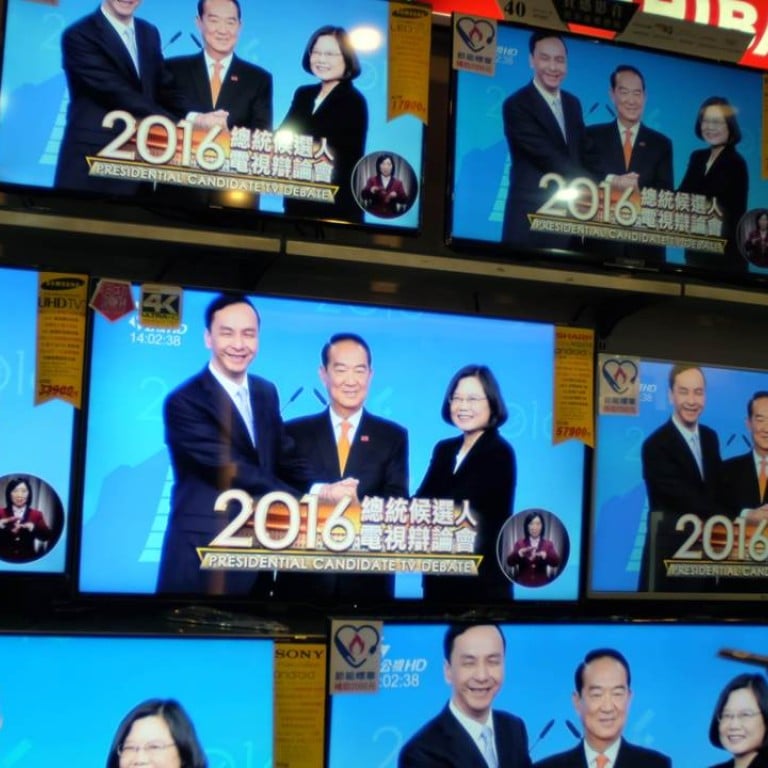
Taiwan’s opposition leader highlights risk of close ties with China as election looms
Tsai Ing-wen, front runner in Taiwan’s presidential election, said her party had never exclude to build ties with mainland, what they care about is crisis management.
Managing risk is the key to economic and trade ties with the mainland, Taiwan’s opposition leader Tsai Ing-wen said yesterday during a debate between candidates a fortnight before the island’s presidential election.
The comments by Tsai, chairwoman of the Democratic Progressive Party (DPP), come weeks after she called a plan by a mainland state-backed technology group to invest about US$2.6 billion in Taiwan a “huge threat” to the Taiwan’s powerful semiconductor industry.
“The DPP has never excluded economic and trade exchanges with [the mainland],” Tsai said in the debate. “But we pay attention to the management of the risks.” Tsai said the DPP, which leans toward independence for Taiwan, hopes to continue in the “spirit” of using risk management and control to manage economic and trade exchanges with China.
Last month, Tsai said until doubts were resolved over plans by China’s state-backed Tsinghua Unigroup to partly acquire three Taiwanese semiconductor companies, the plans were unlikely to be approved. The deals are still awaiting approval by regulators and company shareholders.
Tsai, the front runner in polls, has tread carefully in discussing how she will engage mainland authorities if the DPP returns to power. The party has historically favoured the island’s formal independence and says it believes only Taiwan’s people can decide its future. Beijing takes this to mean it wants independence.
Relations have improved since the ruling KMT’s former chairman Ma Ying-jeou became Taiwan president in 2008, and the two sides have signed landmark trade and tourism deals.
However, a public poll showed Tsai retaining a big lead ahead of the January 16 elections, despite a historic summit between Ma and his counterpart President Xi Jinping (習近平) in December.
“You can dissatisfy the KMT, Ma Ying-jeou and so too Eric Chu, but please don’t take your anger out on Taiwan’s future,” Chu, chairman of KMT told yesterday’s Television debate, calling Taiwanese people to change their mind to support KMT.
Tsai is one of three presidential contenders, which also include Chu and James Soong, chairman of the People First Party. Taiwan votes for a new president and parliament on January 16.
The defeated Kuomintang led by Chiang Kai-shek fled to Taiwan after losing the Chinese civil war to the Communists in 1949.
Beijing has never renounced the use of force to bring what it deems a renegade province under its control.


